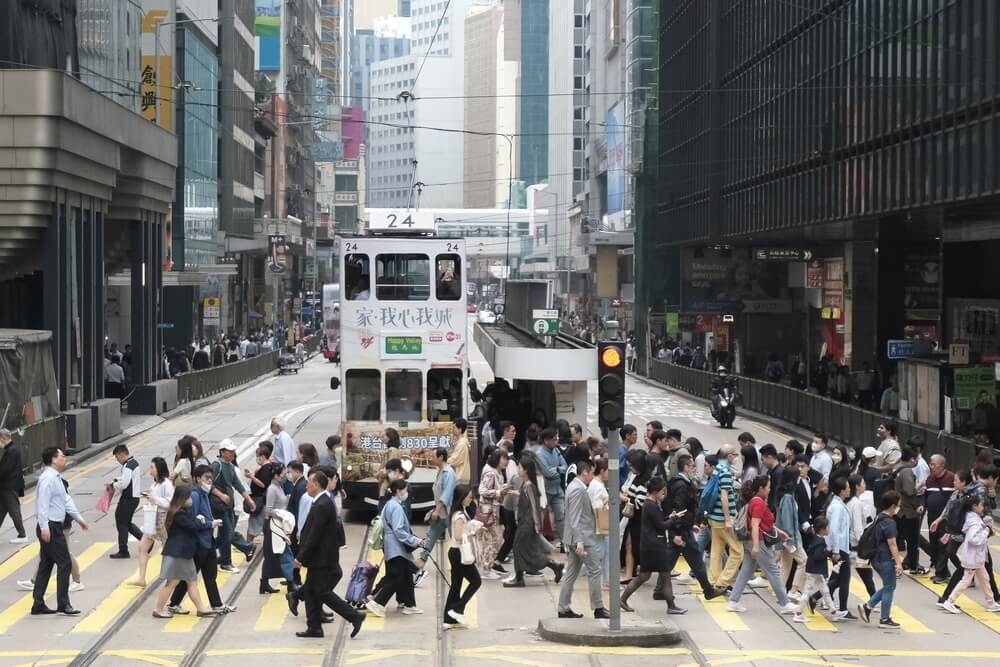Beijing has rounded off security control over Hong Kong with a new security law that de facto erased the difference in exposure to state surveillance and repression between the city and the mainland.
A new security law will be implemented starting tomorrow, according to which someone could get life in prison if proven to be a "subversive" element.
With this step, Xi Jinping's government has confirmed its focus on strengthening state control over social life, not opening up and economic development.
The law, voted by pro-Beijing members of Hong Kong's parliament last Tuesday and effective on Saturday, finally stripped the city of the autonomy provided under the 1997 handover agreement and the subsequent Basic Law.
With this law, the Beijing government will impose identical, rigid provisions on Hong Kong that reduce numerous guaranteed freedoms and practically suck the city into its system of internal surveillance and repression.
Triumph in Beijing
China celebrates this moment as the end of the period in which "anti-China and anti-Hong Kong forces have been entrenched in Hong Kong for a long time", as previously announced by the Chinese Ministry of State Security.
On the other hand, starting tomorrow, Hong Kong will no longer have guarantees for conducting business without state interference and for the free work of civil society and the media, which were part of the 1997 agreement with the UK.
The speed with which the law was passed in the city’s parliament, particularly the enthusiasm of the local puppet representatives, has indicated that implementing the new strict security measures would be sharp and fast.
The pro-Chinese authorities of Hong Kong will try to show their loyalty to the central government in Beijing even more strongly after this significant step by applying repressive measures. Beijing expects precisely that.
What has long been the standard of internal repression in China is now being introduced in Hong Kong
What has long been the standard of internal repression in China is now being introduced in Hong Kong. The new law targets espionage, susceptibility to foreign influence, theft of state secrets, and treason.
Some criminal cases might be heard in Chinese courts, and some trials might be closed to the public. In the event of a conflict between the laws of Hong Kong and similar regulations of China, the laws of China shall prevail.
The possibility of wiretapping of suspected individuals has been established, as has the establishment of a local security commission to execute the law under the supervision of a Beijing-appointed representative.
What is significant for Hong Kong's future is that the law will apply to foreigners who do not have a permanent home in the city of 7 million people, not only to its citizens.
Doing business in Hong Kong is risky
This causes concern among Hong Kong's international business community, firmly established due to the city's liberal environment, which has helped it become one of the global business capitals.
Hong Kong is well on its way to losing that status, as companies will be exposed to strong state oversight. Their employees, foreign nationals in particular, will find themselves in a labyrinth of insufficiently clear regulations starting tomorrow, so they could easily find themselves on the receiving end of a harsh security law.
Legal understanding of some crucial concepts, such as espionage or "external forces", and what constitutes a state secret has not been fully defined.
Beijing managed to transpose its rigid anti-espionage law to Hong Kong, passed in June last year
Beijing managed to transpose its rigid anti-espionage law to Hong Kong, passed in June last year, which frightened international businessmen because it exposed them to the danger of being arrested as spies for, for example, simple market research.
"We're urgently seeking advice on two key points - does our research of companies and individuals stray into risky areas, and how can we safely manage any relationships with foreign government-linked wealth funds”, an executive at an international company in Hong Kong told Reuters, understandably hiding his identity because of possible repercussions.
Is eviction forthcoming?
It is almost definite that international business will begin to rapidly move out of Hong Kong due to the new restrictive security laws. The same thing happened in China after it tightened security control and repression of foreign entities last year.
The outflow of capital is a logical consequence, which will search for other destinations in Asia, and judging by the Chinese example, most will move to India and countries in the Indo-Pacific region.
 It is almost definite that international business will begin to rapidly move out of Hong Kong due to the new restrictive security laws
It is almost definite that international business will begin to rapidly move out of Hong Kong due to the new restrictive security laws
People from the media and political and civil activists, who for years opposed the immersion of Hong Kong in the security regime of the mainland, are also under attack, not only the business community.
“The overall impact of Hong Kong’s new national security law is that it will further damage the rights and freedoms enjoyed in the city”, said David Cameron, UK Foreign Secretary.
The suppression of Hong Kong as a liberal autonomy is now moving to the top of the long list of contentious issues between the West and China.
Beijing apparently accepts such developments, guided by the doctrine of strengthening state control on which Xi Jinping's rule is based.